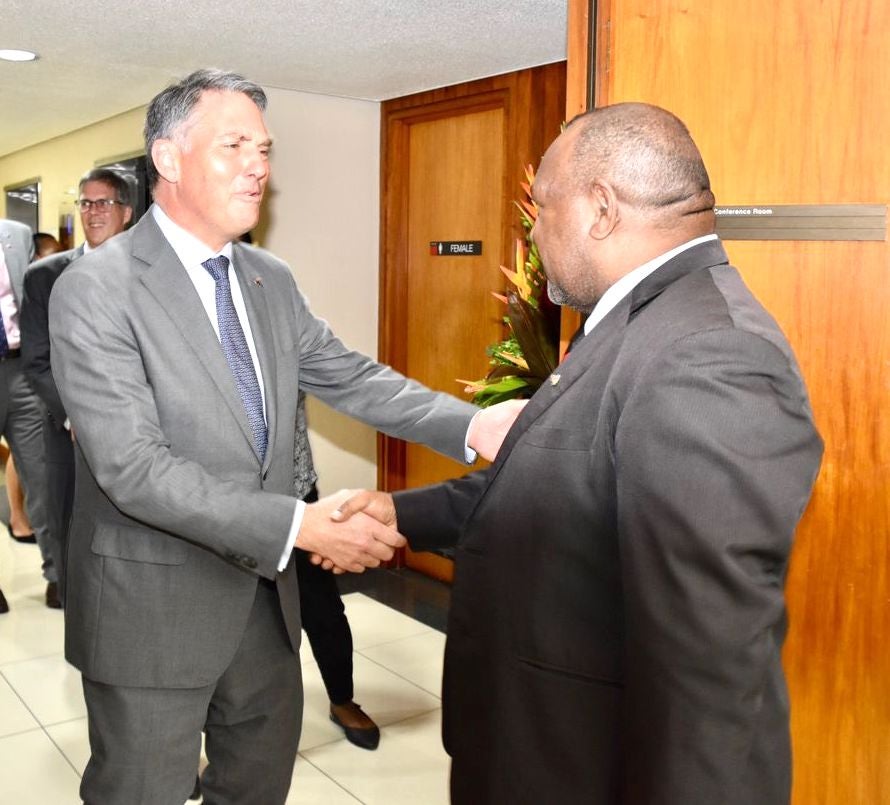Australia and Papua New Guinea Working on Bilateral Security Treaty
On 13 Octoberh, Australian Defense Minister Richard Marles met with Prime Minister James Marape of Paupua New Guinea (PNG) in Port Moresby in order to discuss the future of defense cooperation between the two nations. The PNG Prime Minister later told the press that the countries are working together with a “very ambitious” agenda that should result in a treaty-level bilateral defense agreement between the two Pacific nations.
Papua New Guinea, which was administered by Australia until 1975, maintains close ties with Australia which is the PNG’s biggest trading partner. Military cooperation between the nations is already significant and takes many forms. For example, Australia contributes to the training to PNG personnel through the Australian Defence Organisation’s Defence Cooperation Program. During the Covid-19 pandemic, Australia sent Australia Defence Force (ADF) personnel to help manage vaccine roll out. Earlier in 2019, the PNG had sent 99 officers from its own defense forces to support Australian efforts to control bush fires.
This development follows up on statements made by PNG Foreign Minister Justin Tkatchenko in August which expressed his wishes to see a defense agreement signed by the end of this year:
“It’s nothing new as we have been discussing this since 2019. But since we now have these issues in our region, like the Solomons-China issue and the China-Taiwan issue, we will just have to enhance, strengthen and fill in the loopholes to update the treaty arrangement and agreement due to the current situation in the region.”
As competition between the West and China continues to intensify, with Oceania becoming a major area of political competition, Papua New Guinea can be counted among the few nations in the region which have taken a strong stance in favor of one of the superpowers. Thus, like Australia, America is meeting the PNG with open arms. Recent cooperation has not been limited to just military issues; the US has been supporting electrification in the PNG, law-enforcement training, creating green infrastructure, combating wildlife trafficking, and has increased USAID presence in the country.

